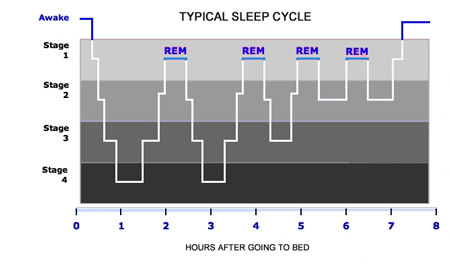 Today's topic exemplifies the reason I made this blog. There's simply too much out there and it all seems to contradict. For this post I tackle the classic question of losing fat while building muscle, also known as:
Today's topic exemplifies the reason I made this blog. There's simply too much out there and it all seems to contradict. For this post I tackle the classic question of losing fat while building muscle, also known as:Recompositioning.
Let me cut to the punchline - if you're at a calorie deficit (and/or the scale is going down), but you're lifting heavier... You're doing it.
Everyone seems to be in agreement this is possible for newbies or those recently returning to fitness. No one seems to agree whether you can successfully train in this way beyond that. Some say it's absolutely not going to happen, others argue it is possible, but striving for both limits the rate at which you lose fat/gain muscle. Some state that it's perfectly achievable when timing/nutrition/training strategies are properly used.
Let me again cut to the punchline - if you're at a calorie deficit (and/or the scale is going down), but you're lifting heavier... You're doing it. If not, time for adjustments.
I am especially confused by this topic, as every argument seems to be citing research. For those who agree it is possible, there seems to be some general trends:
1. Let's get the obvious, in every fitness article ever, out of the way - Sleep/fish oil.
2. Eat lots of protein. I have seen everything from .8-2x your body weight, and some use those figures just for lean body weight. Even at my 165lbs (~122.1lbs lean according to my who-knows-if-it's-accurate scale), that puts me at anywhere from 97.7 - 330g. That's about as useful as the test of premorbid (preinjury) functioning we psychologists sometimes administer, which had a confidence interval so wide that a score could range from a severe intellectual disability to unbelievably gifted genius. "Um... so your estimated premorbid FSIQ score of 100 was at or above 50% of your same-aged peers, with a confidence interval of 60-140...." Anyway, protein. I've heard these high figures are required to have adequate building material to repair and build muscles after workouts. I've also heard that these figures are absurd and unnecessary, as told by a registered dietician. I tend to subscribe to a third opinion; we may not need so much protein, but the high numbers are necessary in order to meet our calorie goals without going overboard on carbs and fat. For me, the latter makes the most sense for the carb stuff I'm about to talk about.
 3. My last post covered insulin sensitivity, glycemic index/load, and the role of glucose. Building on these concepts, many sources suggested low carbs on non-lifting days, higher carbs on weight days. Nothing new there. I've seen carb cycling tossed around many times. The added component I learned was potentially using carbs up to 30 minutes prior to exercise, during a workout, and of course, carb loading post-workout. One source said to treat the pre-lifting period as low carb, and the post-workout period as the only window for high carb. That same article recommended workouts later in the day, but with plenty of time before bedtime. I didn't see this advise elsewhere so it doesn't get its own bullet.
3. My last post covered insulin sensitivity, glycemic index/load, and the role of glucose. Building on these concepts, many sources suggested low carbs on non-lifting days, higher carbs on weight days. Nothing new there. I've seen carb cycling tossed around many times. The added component I learned was potentially using carbs up to 30 minutes prior to exercise, during a workout, and of course, carb loading post-workout. One source said to treat the pre-lifting period as low carb, and the post-workout period as the only window for high carb. That same article recommended workouts later in the day, but with plenty of time before bedtime. I didn't see this advise elsewhere so it doesn't get its own bullet.4. Pick up and put down really heavy things about 3 days a week.
5. Cardio, but no one agreed on what kind. Everyone discussed High Intensity Interval Training (HIIT), but others suggested also including long intervals and low impact sustained cardio (i.e. walking on a treadmill at a steep incline for 45 minutes). In a future post, I'm sure I will discuss this trifecta of cardio as a means to improve overall run times. I've seen it pop up many places as the best way to train, even if your goal is distance running. Stand by for more on that at a later date.
6. Lots of brand-promoting supplements. Everyone seemed to recommend green tea, but some mentioned the research shows it shouldn't be the caffeine-free kind...... if I didn't know green tea had many established health benefits, I'd question that specifier more. Caffeine made a lot of lists too. Shocking. I saw a lot of articles include Alpha Lipoic Acid (ALA), but I know nothing about it, so I will not comment further. Some said Conjugated Linoleic Acid (CLA), but I have it on good authority if any effects of CLA supplementation are noted, they are minimal and take a long, long time.
7. Saunas or other heat sources (or the exact opposite i.e. ice bath). I only saw this on T-Nation, but their articles always make me laugh out loud, so it can have its own number. Also, increased body temp during the day has been shown to increased sleep quality at night (see post From Freud to Fitness). Better quality and adequate sleep was number one on this list, soo...
Of note, many sites suggested that even though it may be possible to do both simultaneously, it may not be worth it. Going back to the spectrum of opinions, attempting to achieve both goals may slow the rate of progress. I haven't investigated the strategies of bulking vs. cutting thoroughly, but it's a surplus/deficit game, and I know they both involve heavy lifting. All the sources I saw advised against really high rep lifting; without looking into it further, I presently have no comment.
Lucky for me all speculation is irrelevant because I am newly back in the consistent training game and I am still in that window of being able to do both effectively! This list is mainly for me to maximize my time in this phase.













